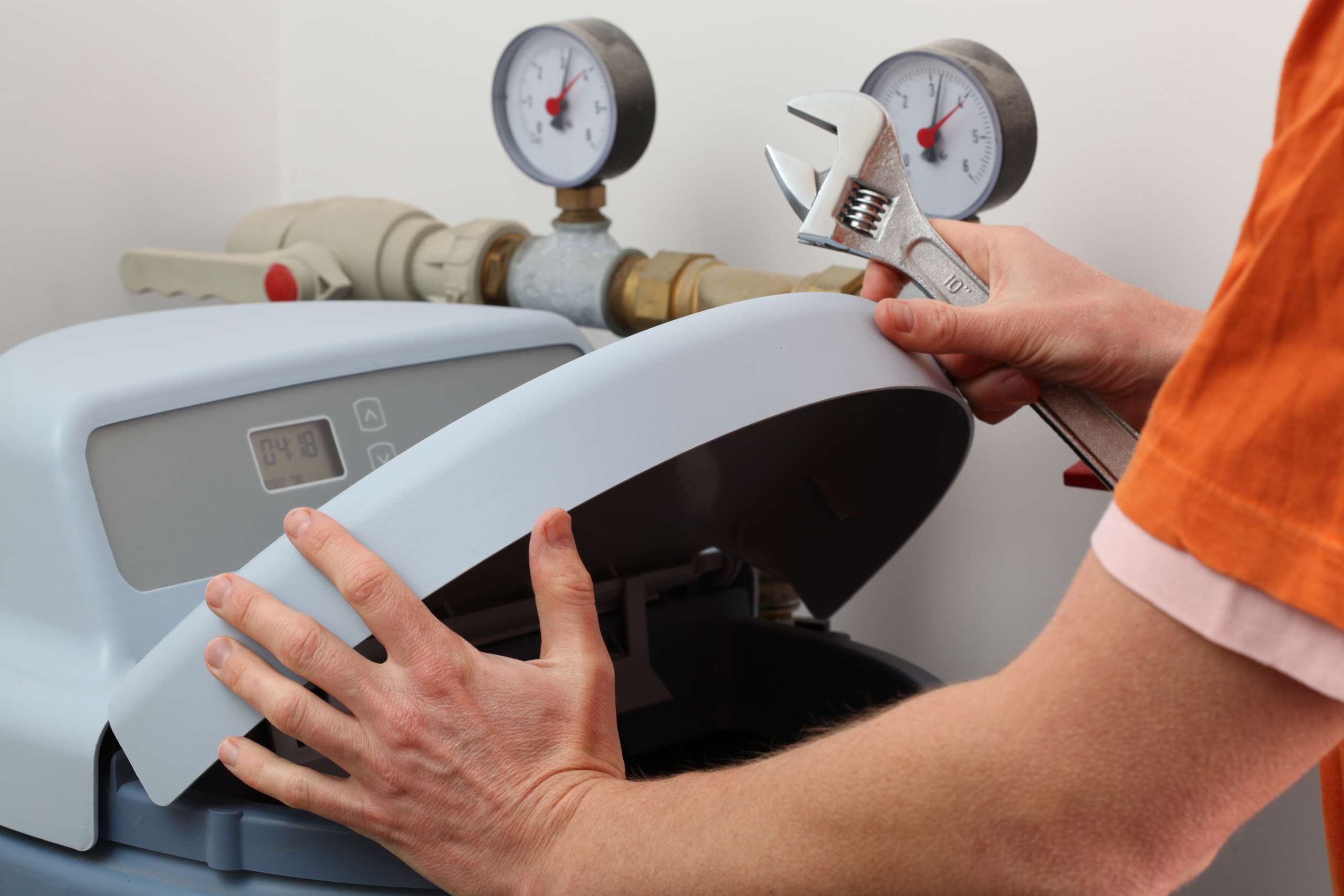While most people are aware that hard water can be damaging to household appliances, the problem often goes unaddressed. Over time, mineral deposits left behind by hard water can accumulate in pipes and appliances and cause problems. You should invest in a water softener system as soon as possible to protect your household from costly repairs. For more information about how you can save money with a softener system, read on and then get in touch with AVH Plumbing.
Water softeners save money
Did you know that hard water costs consumers an estimated $3 billion annually? The problem is that water softeners are often seen as an expensive investment by homeowners. However, when you consider the cost of replacing appliances, fixtures and clothing, water softeners can actually save you money in the long run. Not to mention, the fact that soft water is better for your health.
Water softeners save time
Many water softeners are easy to install and take up little space in your home. If you want to be more efficient, consider installing a water softener. You’ll notice a difference in your clothes, your skin, and your hair because you’ll spend less time doing laundry and more time doing other things.
Replacing all of the filter media on your toilets to remove hard water buildup can be a monumental task. It takes several jobs over the course of several weeks or months. Fortunately, there are commercial companies that will do this for you so all you have to do is figure out the cost and schedule them.
For plumbing softeners that use powders, there are commercial companies like Espro. They offer several different hard-water removal products that you can buy, including a product to remove inches of hard water buildup from your toilet. For detailed information on how they work, see this link.
The best way to use a water softener is to maintain the level of hardness specified on the container. If you’ve ever been concerned about your service area’s water quality, you’ll know that there are relatively low levels of hardness in certain areas. A water softener can remove a lot of mineral deposits in the water by raising the hardness level in hard-to-reach areas.
Hardness levels range from 1 to 6. A water softener will affect changes in hardness from the previous month, according to the manufacturer. Check with your local water authority to confirm which areas need higher levels of hardness.
Most water softeners use a binding agent to improve the quality of the resulting water. This means that mineral deposits are removed but the natural coloring and flavoring of the water remains. You can leave the agent off during setup and during use, but it can be a tedious process, especially when it comes to lesser-used areas.
Soft water is better for your appliances and household items
Soft water is better for most household items, including dishwashers, washing machines, and even your steam irons. Soft water is also better for your plumbing, which will last longer without the buildup of hard water deposits.While most areas of the US have net metering, a few parts of the country do not. When using a solar provider, it is important to know the details of your energy provider’s net metering rules. The entire state of Florida’s net metering rules are available for viewing.
Soft water is better for your health and well-being
Soft water is more healthy for your body because it contains less of the minerals and contaminants that are usually found in tap water, such as fluoride, chlorine, and other heavy metals. It’s also much more pleasant to bathe and shower in because it doesn’t dry out your skin and it doesn’t leave behind a soapy residue. Having a hard water system in place will not stop algae from growing, but it will help remove minerals like calcium, magnesium, and silicon from the water. This will help appliances to function properly, even if they’re not fully milled and properly checked for cracks and fissures.
Hard water clogs up valves, leading to the potential for catastrophic damage to your house. It can even lead to black staining inside your pipes, which is a sure sign of a plugged pipe. Effective hard water systems catch most types of harmful substances, while soft systems may fail to remove something essential.
What is the difference between hard, soft, and reverse flow water? Reverse-flow water systems start out flowing in one direction, then switch to another. When they’re used, the water level should be controlled to prevent flooding. Hard water is the standard water type in the United States. Soft water is often used for locations that are otherwise not subject to extreme temperatures, especially those with mountains or other natural drainage. Reverse-flow systems are typically installed and maintained by a plumber, and they often require a licensed electrician.
Vacuuming up hard water and then back-flowing, or back-washing, it can cause your vacuum to clog up, making it useless. Some purifiers designed to deal with hard water cleaning liquids can sometimes clog up with these cleaning solutions as well! To avoid clogging up the vacuuming mechanism, always run the vacuum for at least five minutes before cleaning it!
If you run water from the tap, you likely use tap water that is slightly hard. This is not necessarily harmful, but at certain times of the year (such as during hot and humid weather), mineral-laden chlorine compounds known as chloramines will be present in your water supply.
A water softener system can be installed in under an hour
If you live in an area where your water is particularly hard, you may be looking for a solution to soften your water without spending a lot of money on bottled water. Installing a water softener system can be a great option for you.A water softener system filters tap water to remove minerals and impurities, which make hard water less damaging to your appliances.
To determine the type of water softener system that’s best for your home, take a look at this list of popular systems:
Before You Choose a System
Before you decide which system is right for you, consider the following points:
Hard water can damage your appliances if you don’t add a system to remove the hard minerals. Hard water minerals can cause your appliance’s water to become undrinkable as salts are consumed, and over time, lead to bubbling, sediment, and algae — all signs of pipe and water damage.
Hard water is especially dangerous for septic systems and water softener tanks due to its tendency to clog pump handle fittings and cause leaks.
To make sure you find a system that will work as intended, make sure the system you’re interested in:
How Does a Water Softener Work?
The rate at which the water passes through the softener is determined by the size and shape of the system. The softer the water, the slower the water flow. With more water in the system, the system’s purpose is accomplished more quickly, and the more water force is applied, the stronger the system is.
An extremely popular example of a water softener is the Reverse Osmosis water softener, which uses powerful pumps to grab and hold impurities in the water and slowly pull them to the top. Reverse osmosis uses two parts — a tank at the top and a collecting chamber at the bottom.
The Reverse Osmosis system can purify more than 100,000 gallons a day.
Ask about a water softener system today and contact AVH Plumbing today by using this convenient contact form.

